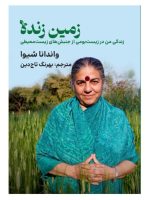
Vladimir Galaktionovich Korolenko was born in Zhytomyr, Ukraine, then part of the Russian Empire on 27th July 1853.
His father died when he was 13 and life was then often struck with bouts of poverty, which resulted in his education being somewhat erratic. A spell in exile at 23 was followed by another as the politics of the times opposed his volatile but heart-felt passions.
Writing was also coming to the fore and in 1879 his debut short story telling of a young Narodnik searching for social and spiritual identity, was published.
In 1881, Korolenko refused to swear allegiance to the new Russian Tsar and was again exiled, this time much farther afield. He spent the next three years doing manual work, but took time to study local customs and history. These impressions in exile provided rich material for his writings.
In 1885 he was allowed to settle in Nizhny, where again he repeatedly questioned the authorities. That same year ‘Makar’s Dream’ established his literary reputation and was part of his first collection ‘Sketches and Stories’, the following year.
In the early 1890’s when famine struck Central Russia, he went to work on relief missions, collecting donations, supervising the delivery and distribution of food, opening 45 free canteens, all this while writing the graphic reports that would later be published as ‘In the Year of Famine’ in 1893.
By 1896 despite some psychological disorders, he was well regarded amongst Russian writers and was even a member of the Russian Academy of Sciences. Throughout his writing career Korolenko was a staunch advocate of human rights, putting that sacred activity above what he called his ‘part-time-writing’.
In the Revolutionary year of 1905, under his editorship, Russkoye Bogatstvo published the Manifest by the Petersburg Soviet of the Workers’ deputies. Korolenko was now repeatedly harassed by the authorities, had his flat raided many times and materials confiscated.
As a lifetime opponent of Tsarism, he guardedly welcomed the Revolution of 1917. Once the nature of Bolshevism was established, he soon started to criticize it. During the Russian Civil War that ensued, he condemned both the Red Terror and the White Terror.
Despite suffering from a progressive heart disorder, he collected food packages for children in famine-stricken Moscow and Petrograd as well as organised orphanages and shelters for the homeless.
Vladimir Korolenko died in Poltava, Ukraine, of the complications of pneumonia on 25th December 1921. He was 68.






